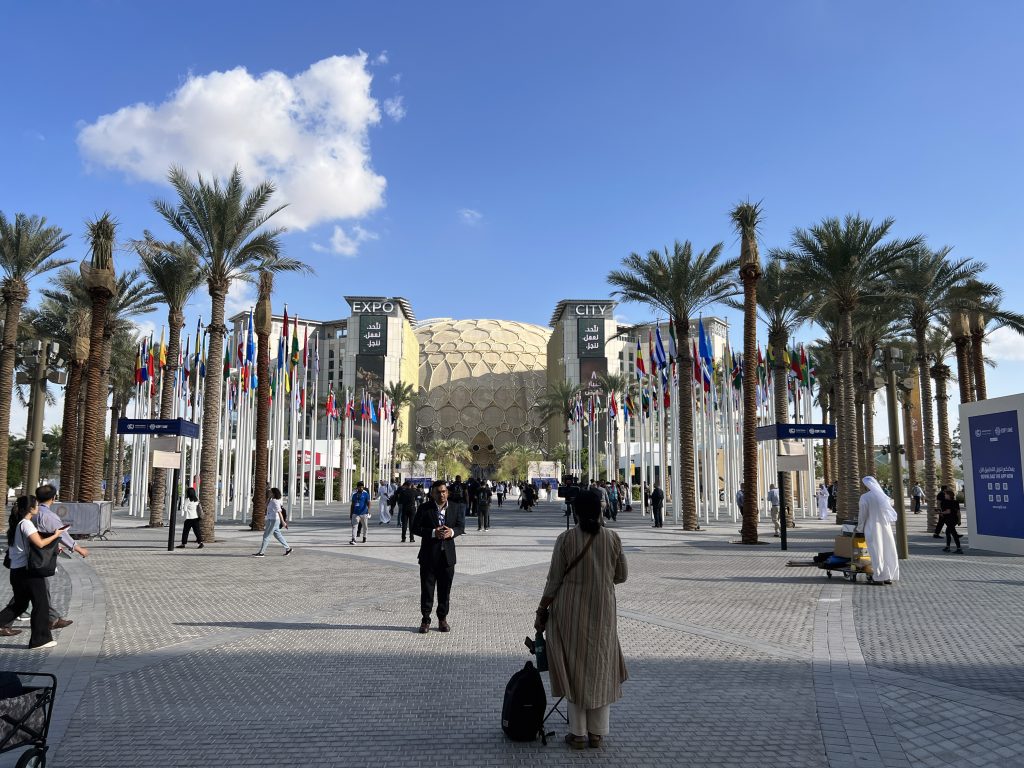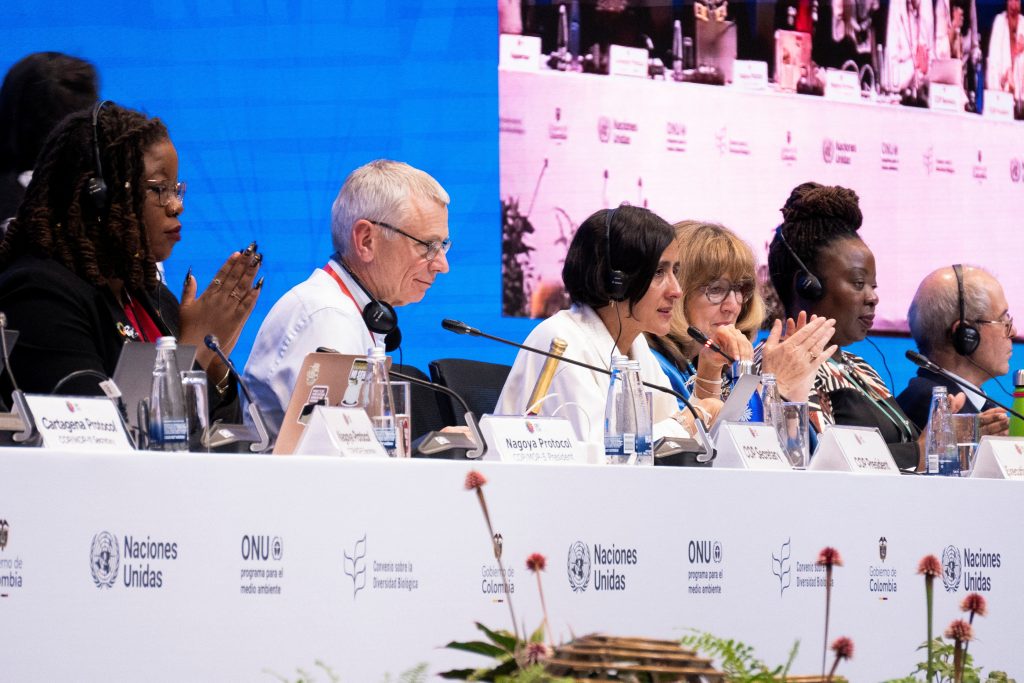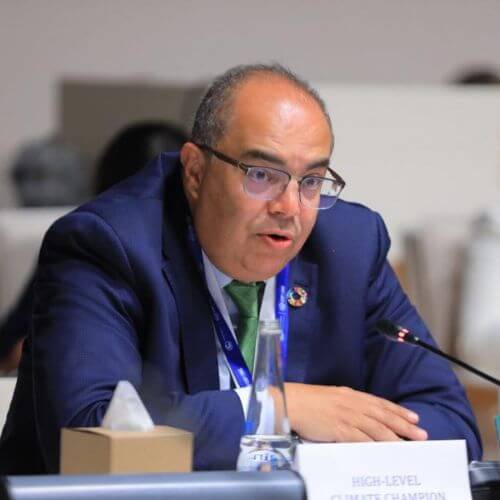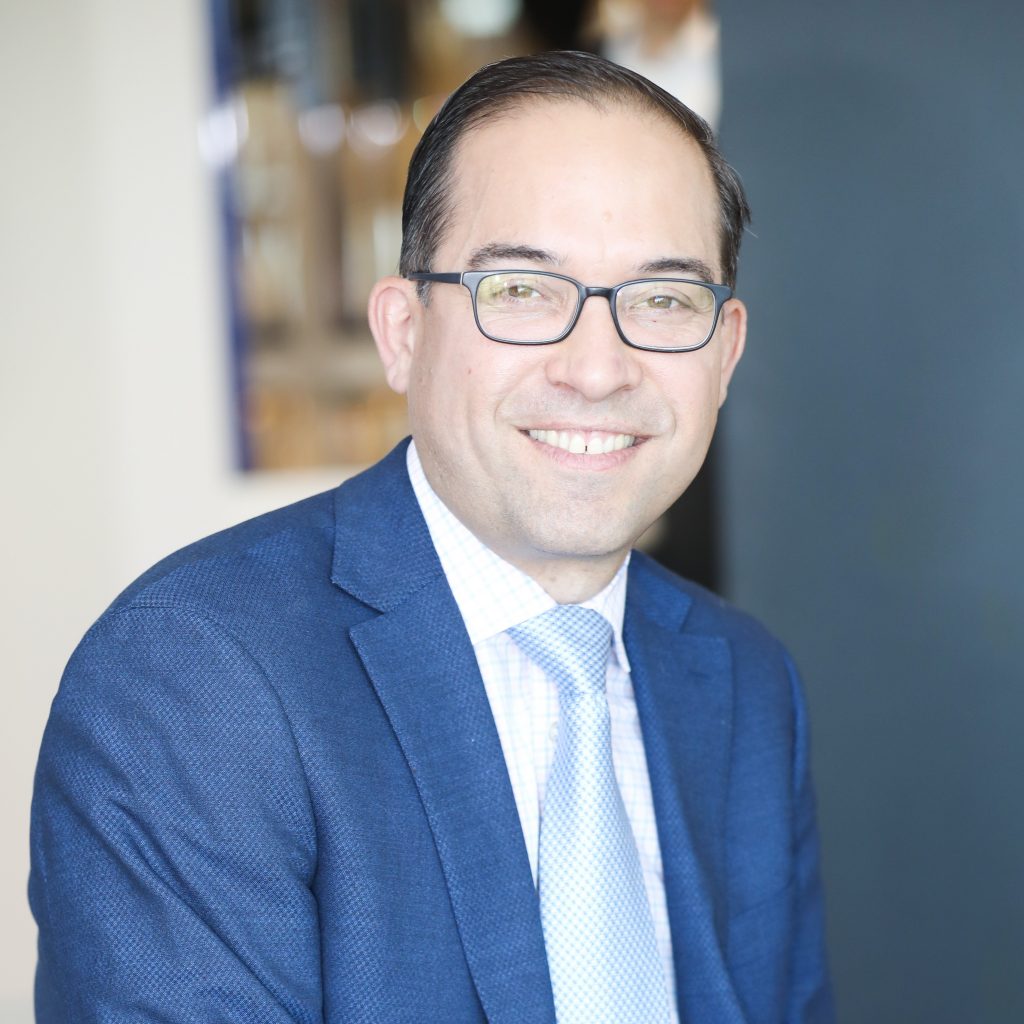Our work with the private sector
Climate negotiations have historically focused on public sector efforts. The private finance sector is often excluded from the conversations that shape policies and global commitments. Notably, this lack of collaboration has been costly. In recognition of the untapped potential for the private finance sector, the United Nations Climate Change High-Level Champions (UNCCHLC) and the Atlantic Council’s Climate Resilience Center envisioned a new way forward.
In May 2023, the two organizations co-hosted the first roundtable dialogue. Stakeholders from banks, insurance companies, and investment firms gathered to consider what policies could better enable their support and investment in climate resilience. The roundtable dialogue aligns with the Sharm El Sheikh Adaptation Agenda to inform UNCCHLC conversations at COP28 and beyond. These meetings allowed public and private finance stakeholders to connect and ensure that international policy enables private sector mobilization.
Since the initiative began, there have been six roundtable discussions that connected over eighty industry leaders. These roundtable dialogues have outlined a way forward for both the public and private sectors. The public sector has a responsibility to design an enabling environment for private sector climate finance. The private sector, in turn, has the opportunity and potential to close the adaptation gap and build more resilient systems for businesses, economies, and communities.
Why is the private sector essential for climate action?
Developing countries need up to 18 times more than current public financing offers to fund their adaptation efforts. With public finance falling short, the private sector has an important opportunity.
It has the capacity and assets needed to mobilize financing for climate resilience efforts. In fact, the latest IPCC report confirms that there is sufficient global capital and liquidity to close the climate investment gap. If properly engaged, the private sector can motivate large-scale change.
What have the roundtable dialogues achieved?

Informing international climate processes
Each year, the United Nations appoints High-Level Champions to mobilize and encourage climate action across sectors. As co-organizers of these roundtables, the Champions have amplified and shared private sector insights in meetings on the Global Stocktake. These recommendations have informed next steps to more effectively finance national adaptation plans and climate resilience solutions.

A call for collaboration
The roundtable dialogues and resulting efforts were designed in alignment with the Sharm El-Sheikh Adaptation Agenda, which was launched at COP27 to outline thirty adaptation targets for the next three decades. The collaboration between the Climate Resilience Center and UNCCHLC led to the development and launch of a Call for Collaboration. The call invites stakeholders from governments, civil society, and the private sector. Together, they build frameworks and policies that “enable finance mobilization for climate resilience—emphasizing nature’s role in global well-being and prosperity.”

Reflecting regional perspectives
Notably, these roundtable dialogues not only capture diverse private sector perspectives. They also acknowledge that there are distinct regional barriers to effective collaboration. The Climate Resilience Center and UNCCHLC planned a series of regional roundtable discussions. These meetings were held on the sidelines of Africa Climate Week in 2023, Latin America Climate Week in 2023, and London Climate Week in 2024. The dialogues identified barriers to participation and opportunities to scale climate finance in each region.
Meet the co-facilitators
The roundtables connect key stakeholders to ensure a broad perspective of perspectives are included in climate policies and negotiations. To ensure the findings and takeaways can be effectively applied, four core co-facilitators have driven this process.

Mahmoud Mohieldin
Dr. Mahmoud Mohieldin served as the United Nations Climate Change High-Level Champion for Egypt at COP27. Mohieldin has also served as the Special Envoy on Financing the 2030 Sustainable Development Agenda and as the Executive Director at the International Monetary Fund (IMF).

Jorge Gastelumendi
Jorge Gastelumendi is the senior director of the Atlantic Council’s Climate Resilience Center. He has over two decades of experience in the climate policy space. Gastelumendi has contributed to key negotiation processes, including inputs to the 2015 Paris Agreement.

Sabrina Nagel
Sabrina Nagel is the advisor for global policy and finance at the Atlantic Council’s Climate Resilience Center. Nagel is the adaptation and resilience finance lead of the Climate Champions Team, the supporting body of the United Nations Climate Change High-Level Champions.

Nidhi Upadhyaya
Nidhi Upadhyaya is the deputy director for global policy and finance. She heads the adaptation finance and policy pillar of the Atlantic Council’s Climate Resilience Center.


